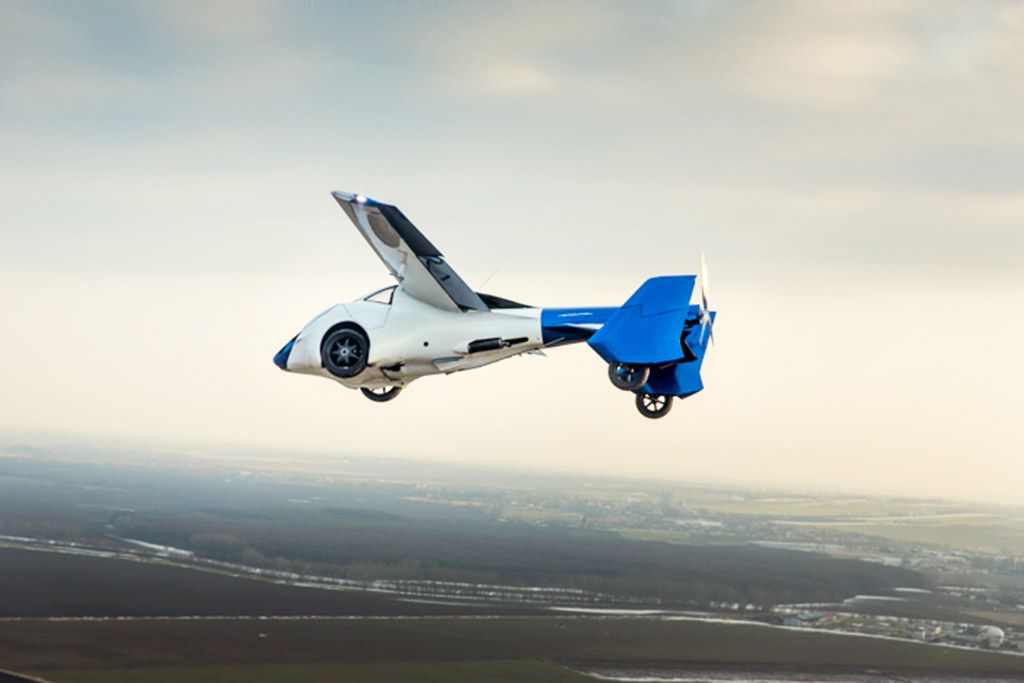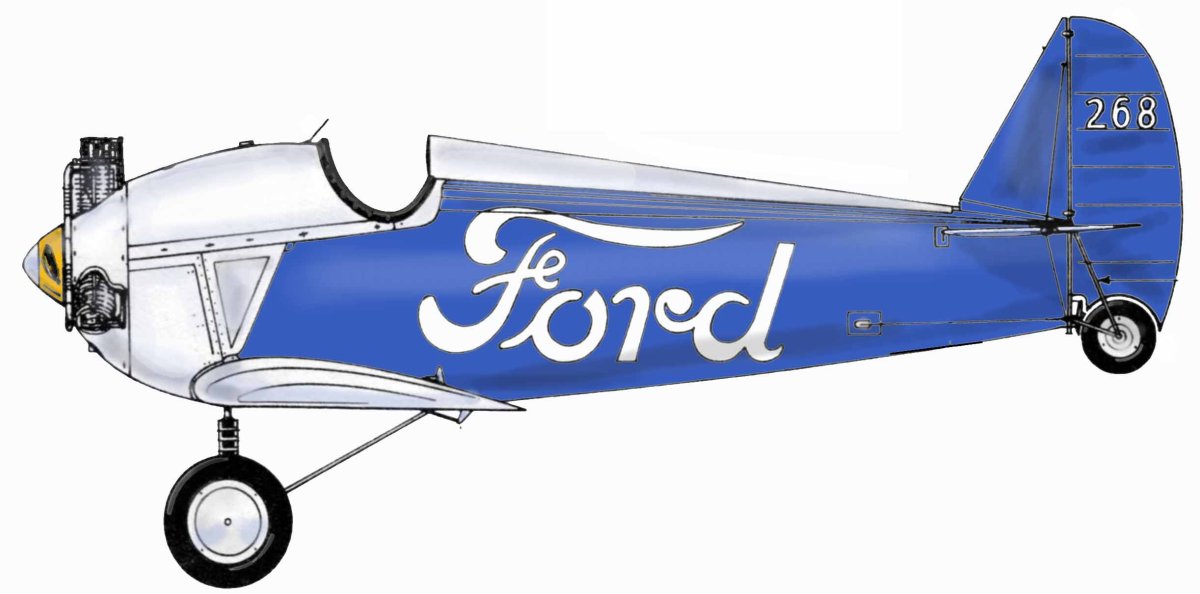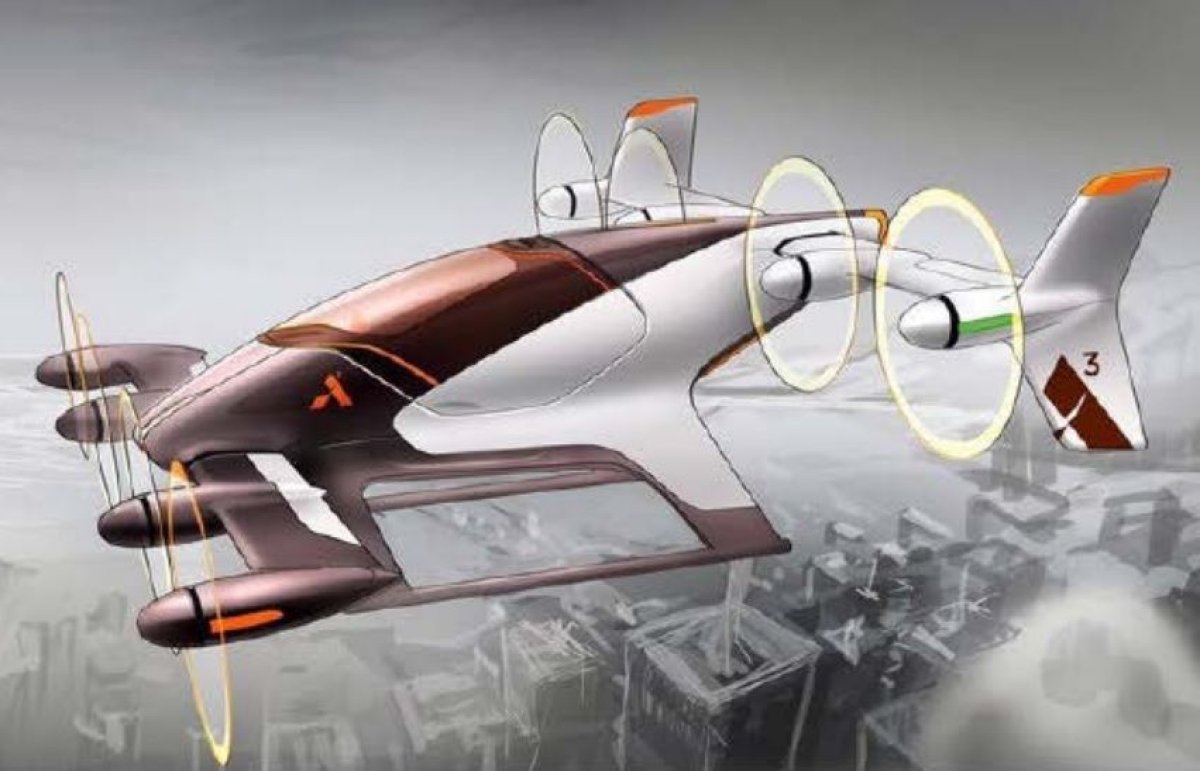
"Mark my word," Henry Ford once said, "a combination airplane and motorcar is coming. You may smile, but it will come." The pioneer of mass-market automobiles made this prediction in 1940, but despite his own efforts to develop a flying car, he never saw one succeed at scale in his lifetime.
Last week, two startups aiming to develop personal flying vehicles—AeroMobil and Lilium—made separate announcements about their progress, while this week Uber and Google's Larry Page revealed their futuristic visions for the field. It would seem we're edging closer to Ford's prophecy being fulfilled, but probably not in the way he imagined.
Slovakian company AeroMobil unveiled the latest iteration of its flying car at a car show in Monaco last Thursday, promising to deliver a commercially available vehicle this year. On the same day, Munich-based Lilium released a video of the maiden test flight of its two-seater Eagle prototype.
What both companies failed to address in their respective press releases, was exactly how such vehicles would integrate into the existing infrastructure while conforming to strict aviation regulations.
Putting these considerable concerns aside, the cost of the flying cars and the need for a pilot's license will mean the vehicles shown off last week will never make it to the mass market. But their creators believe they will be the first step toward it.
"The first vehicle is intended to create a buzz," Stefan Vadocz, AeroMobil's chief communications officer, tells Newsweek. With only 500 flying cars being produced, costing around $1.5 million each, that is about all the AeroMobil Flying Car will be able to do. "Eventually, though, we want to build a mass-market flying car, which is autonomous and can fly anyone."
It is a business model that has so far been successfully implemented by Tesla CEO Elon Musk in his quest to produce an affordable electric vehicle. Musk is currently on part three of his "master plan," which involved creating a high-end electric car (the Roadster), in order to finance a mid-range electric car (the Model S), which in turn financed an affordable, everyday electric car (the Model 3).
Lilium shares AeroMobil's vision for the future of flying cars, hoping to build an on-demand autonomous taxi service that would eliminate the need for people retraining as pilots. But even this comes with its own challenges. "There are major psychological barriers in place," Vadocz says. "People need to overcome any issue they might have with the idea of a pilotless plane."
People are still coming to terms with the idea of self-driving cars, according to a survey last year by the University of Michigan, which found only 10 percent of people have no concerns about riding in fully autonomous cars. You can expect this figure to be even lower when faced with the prospect of self-flying cars.
Where Lilium and AeroMobil really differ is in their approach to the take-off method of their vehicles. AeroMobil's fold-out wings require a standard runway in order to become airborne, meaning any journey would require an airport. This limits its usefulness to "cities with major airports but no direct links," such as Vienna and Trovino, or Munich and Florence.
Lilium, on the other hand, favors the vertical take-off and landing (VTOL) system, allowing it to take off and land in any open space, much like a helicopter.
"VTOL is more practical, since you can land basically anywhere," a spokesperson for Lilium tells Newsweek. "We aim to offer our service to people in the city, where there simply are no runways."

AeroMobil says it chose its approach as it foresees greater regulatory challenges facing VTOL vehicles operating over cities, reasoning that governments are still struggling with regulations for drones.
While Lilium admits this is a "big issue," the company did not respond to further requests about the regulatory hurdles it faces and what is being done to overcome them. At the very least, if a new wave of personal air vehicles enter the skies over the U.S., a new air traffic control system would be needed.
It's not just startups working on the technology. Aerospace firm Airbus also has a project underway for its own personal flying vehicles, while Google co-founder Larry Page unveiled the Flyer this week—built by the Kitty Hawk startup he has plowed his money into.
These vehicles could eventually be incorporated into a network of airborne taxis, as proposed by Uber. Jeff Holden, Uber's chief product officer, imagines that by the year 2023, autonomous drones will be carrying passengers to their destinations through an "Elevate" network of VTOL aircraft. The vision was published in a 99-page white paper last year and expanded upon at the Uber Elevate Summit in Dallas on Tuesday. AeroMobil is among the flying car startups hoping to get involved.

"We are watching Uber's plans closely," Vadocz from Aeromobil says. "We've been in touch with the Uber team and we're in talks to incorporate our vehicles into its Elevate network. But it could be another 12 to 15 years before we see this system in place."
2017 marks the centenary of the flying car, first invented by Wright brothers' chief rival Glenn Curtiss. In the 100 years since the failed Curtiss Autoplane, the world has seen the commercialization of air travel, the first person on the Moon and the invention of the internet, yet the promise of taking off in our own personal flying cars has failed to materialize—at least for those who don't count themselves among the mega rich and who don't mind possibly breaking the law in the process.
While they point toward a more advanced future, the impracticalities and barriers mean flying cars seem no closer to really taking off than they did a century ago. But perhaps that is where they should remain. In that almost-there, science fiction space, a symbol of hope for the future, rather than a solution to any real problem of our age.
Uncommon Knowledge
Newsweek is committed to challenging conventional wisdom and finding connections in the search for common ground.
Newsweek is committed to challenging conventional wisdom and finding connections in the search for common ground.
About the writer
Anthony Cuthbertson is a staff writer at Newsweek, based in London.
Anthony's awards include Digital Writer of the Year (Online ... Read more
To read how Newsweek uses AI as a newsroom tool, Click here.








